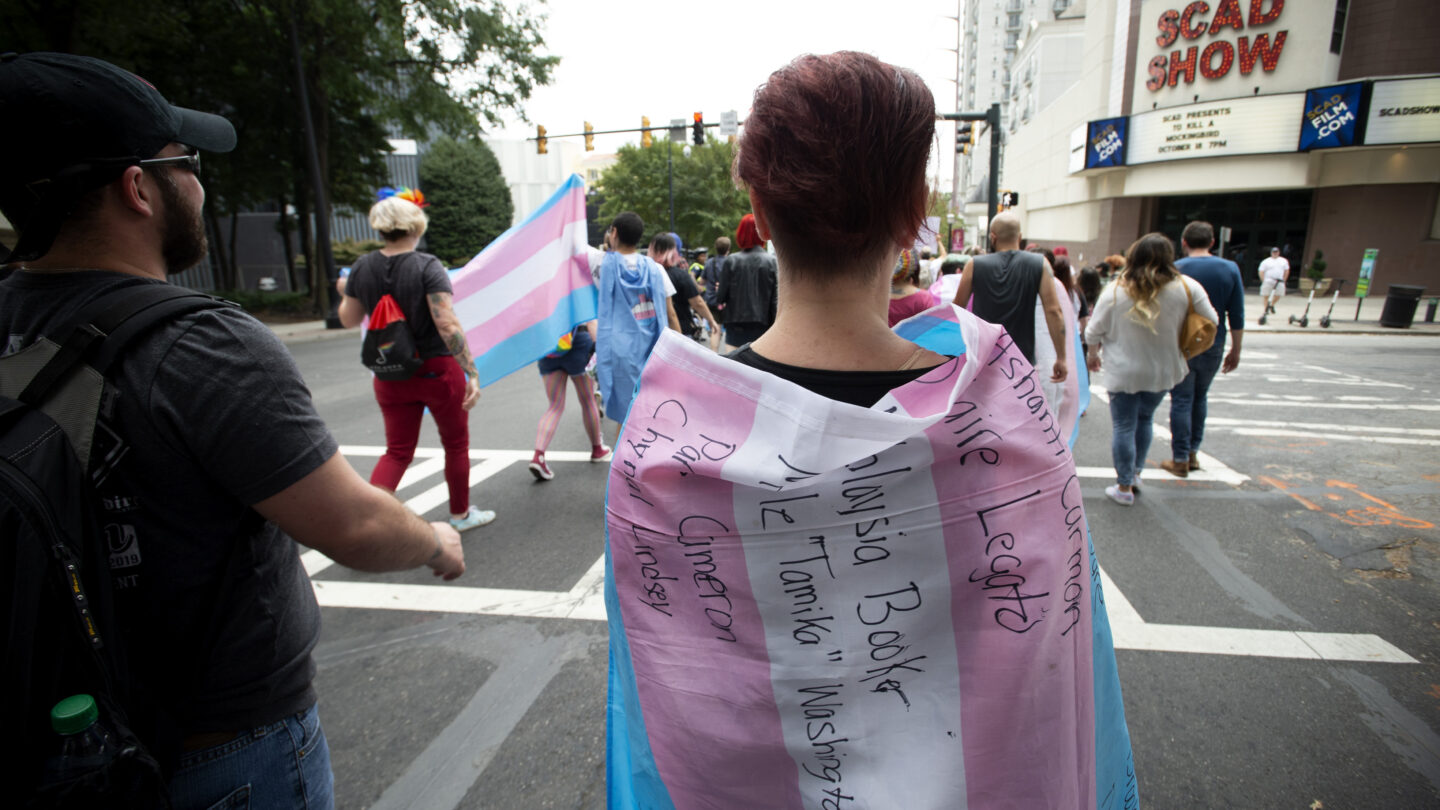Georgia state Senate Republicans advanced language that would ban puberty-blocking medication for transgender minors through a key committee Monday after grafting it to a bill requiring overdose reversal drugs in government buildings.
Democrats said they were blindsided by the substitute to the bill.
“None of us were expecting this particular bill, especially the part that we’ve been talking about with the puberty blockers,” said Atlanta Democrat Sonya Halpern. “The only people that we heard from today are the people who clearly knew that the sub was coming and support it, and we have not been able to hear testimony at all from anybody who would represent the opposing viewpoint.”
Last year, the Legislature passed a law banning hormone therapy for transgender youths. Hormone therapy means prescribing testosterone or estrogen so the patient’s body will become more masculine or feminine. At the time, lawmakers argued that allowing puberty blockers was a fair compromise as it would allow children with gender dysphoria to take time to consider their options.
But bill sponsor Sen. Ben Watson, a Savannah Republican, said new evidence shows puberty blockers should also be banned.
“What the data is showing is that puberty blockers are being used, really almost exclusively, when they are used, they do go on to a sex change operation or surgery or sex change hormones,” he said. “If they are not used, the data is showing that about 50% are electing not to pursue that, and that’s why, upon reflection, I felt this was appropriate to make it so that minors would not be using puberty blockers.”
Many transgender people describe puberty as a traumatic time because their bodies and voices started to develop in ways that feel incorrect.
Puberty blockers were originally used to treat children who began puberty very early, but some medical professionals are concerned about their use for transgender patients. Doctors who treat transgender patients say the drugs can be helpful but are not a long-term solution for gender dysphoria.
Chloe Cole, an activist who opposes gender-affirming care for minors, testified remotely that puberty blockers caused her to have severe complications.
“This practice is abusive, and it led me to want to go further down the path of medical transition because I felt like that was the only way out from this constant dreadful feeling,” she said. “The lie that it allows children time to decide is only a myth, and it only puts children on a fast-track to transition.”
Democrats balked at another invited speaker, Dr. Quentin Van Meter, an Atlanta-based endocrinologist and past president of the American College of Pediatricians, who spoke about risks associated with puberty blockers.
Van Meter was previously disqualified by a judge as an expert on transgender health care, and the American College of Pediatricians – a conservative spin-off from the American Academy of Pediatrics – has been labeled an anti-LGBTQ hate group by the Southern Poverty Law Center.
“We have not heard from the medical professionals that are skilled in this area. We have heard from a doctor from an organization that is classified as a hate group and that is on the record,” Atlanta Democratic Sen. Nan Orrock.
Because of the substitute, the bill will need approval from both chambers before it can become law. The next stop is the Senate Rules Committee, and pro-LGBTQ advocates are hoping for some more advanced notice before the next hearing.
“We need to immediately start reaching out to the Senate Rules Committee to object to the fact that no legitimate medical organization or anyone directly impacted by this legislation was present to provide testimony,” wrote Jeff Graham, executive director of Georgia Equality in a letter to supporters. “Healthcare providers and the professional medical associations in Georgia need to be especially vocal on this.”
Also at stake: the underlying bill that would make overdose-reversal drugs like Narcan available in government buildings.
Jeff Breedlove, advocacy strategist at the Georgia Council for Recovery, said that change will save lives across the state, and he’s hopeful lawmakers won’t lose sight of that as the bill moves.
“It’s a long time between today and Sine Die,” he said. “Many things can happen, and I am confident that the chairman of the committee stands lockstep with me in his desire to make sure that we get Narcan where we need to get it and that he would do nothing that he felt would hinder that effort.”
The puberty blocker language was added to the House bill on the same day the House heard from who is believed to be the first ever transgender pastor to address the state House of Representatives as part of the pastor of the day tradition. Pastor Andi Woodworth with Neighborhood Church in Atlanta was invited by Atlanta Democratic Rep. Saira Draper.
“Y’all, it’s very hard to love your neighbor if you don’t really see your neighbor,” Woodworth said. “To see your neighbor not as an opponent or a target or even as an opportunity but to see them for their humanity, made and beloved by the Divine.”
This story was provided by WABE content partner the Georgia Recorder.










